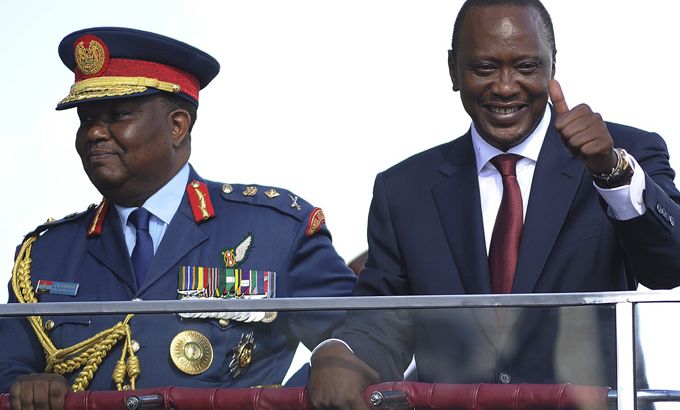
The challenges facing Uhuru Kenyatta
Can Kenya’s youngest ever president be a leader for all and deliver on the promises made to the Kenyan people?
Uhuru Kenyatta has been sworn in as Kenya’s president, the fourth since the nation gained independence exactly 50 years ago.
|
“I think Kenya has actually changed a lot but some failures have remained the same … the economy has changed a lot … but we still have a traditional sector that has not changed a lot. And that traditional sector is I think where the president and his deputy are going to concentrate, like transforming the agricultural sector while the IT sector has been moving very fast, we still have to go back to the other aspects of the economy where most of the people are.“ – Mwangi Kimenyi, senior fellow and director of the Africa Growth Initiative at the Brookings Institution |
Kenyatta took the oath, using the same Bible as his father, Kenyatta Kenyatta, Kenya’s first president.
The US had warned of what it called consequences if Uhuru Kenyatta was voted into office, as it weighed how to deal with a leader indicted by the International Criminal Court (ICC).
But the US and European ambassadors did join around a dozen African leaders and government officials from around the world for the inauguration in Nairobi – a sign, perhaps, of Kenya’s strategic and economic importance.
For his part, Uhuru Kenyatta gave commitments on everything from the economy and employment to education and the environment.
Kenya has grown on every level in the years since independence, to become East Africa’s biggest economy. The population has soared from around nine million in 1963 to more than 41 million at the last count.
The country’s gross domestic product, the value of all goods and services, has risen steadily from about $1bn 50 years ago to over $33bn.
And the International Monetary Fund (IMF) says economic reforms are showing promise, with growth forecast at up to six percent this year, not far off the historic high of seven percent in 2007.
Kenya is also drawing up a blueprint for the coming years, called Vision 2030, focusing on agriculture, manufacturing and tourism.
Education is also a key priority, as outlined by Kenyatta in his inauguration speech, with the promise of free laptops causing some excitement.
But what are the challenges facing Kenya’s youngest ever leader? And can he live up to promises made to the Kenyan people to be a leader for all?
To discuss this, Inside Story, with presenter David Foster, is joined by guests: Aly Khan Satchu, an economist in Kenya and CEO of Rich Management; and Mwangi Kimenyi, senior fellow and director of the Africa Growth Initiative at the Brookings Institution.
|
“Kenya is completely different country to what it was at the time of independence. The population has exploded, we’ve had the recent arrival of the information revolution, it’s practically unrecognisable from the independence days. “I think we’re in a process now of very fast moving transition, it’s when the ground literally shifts its speed. I think this momentum of change has picked up speed in the last ten years but it’s certainly a very very different country to what it was at independence. “And I think President Kenyatta tapped into that mood with his very high-tech campaign, very President Obama-like, very strong ground game and I think new zeitgeist is essentially what he plugged in to and something that the prime minister missed.” Aly Khan Satchu, an economist in Kenya and CEO of Rich Management |